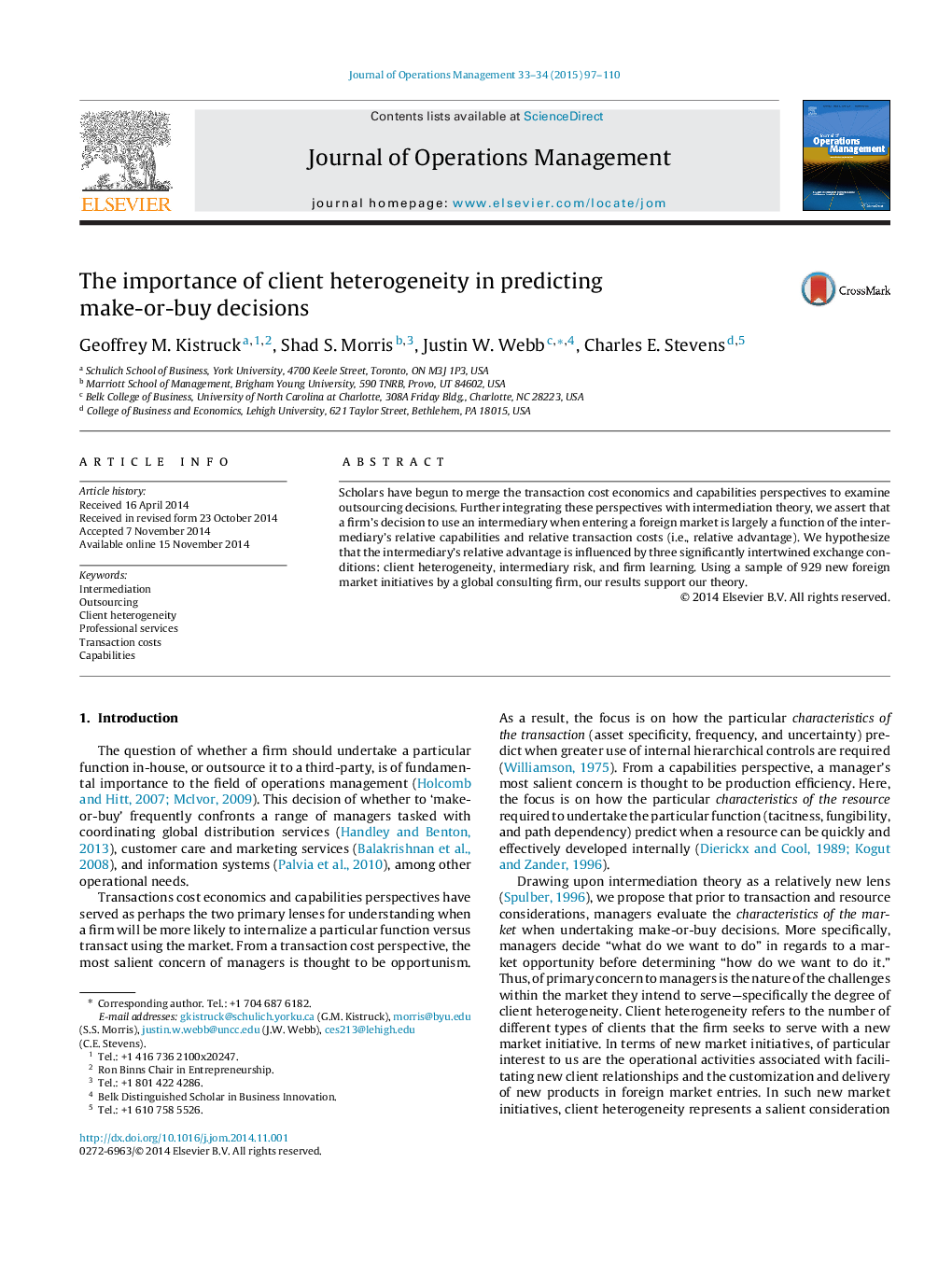| Article ID | Journal | Published Year | Pages | File Type |
|---|---|---|---|---|
| 1031651 | Journal of Operations Management | 2015 | 14 Pages |
Abstract
Scholars have begun to merge the transaction cost economics and capabilities perspectives to examine outsourcing decisions. Further integrating these perspectives with intermediation theory, we assert that a firm's decision to use an intermediary when entering a foreign market is largely a function of the intermediary's relative capabilities and relative transaction costs (i.e., relative advantage). We hypothesize that the intermediary's relative advantage is influenced by three significantly intertwined exchange conditions: client heterogeneity, intermediary risk, and firm learning. Using a sample of 929 new foreign market initiatives by a global consulting firm, our results support our theory.
Related Topics
Physical Sciences and Engineering
Engineering
Industrial and Manufacturing Engineering
Authors
Geoffrey M. Kistruck, Shad S. Morris, Justin W. Webb, Charles E. Stevens,
